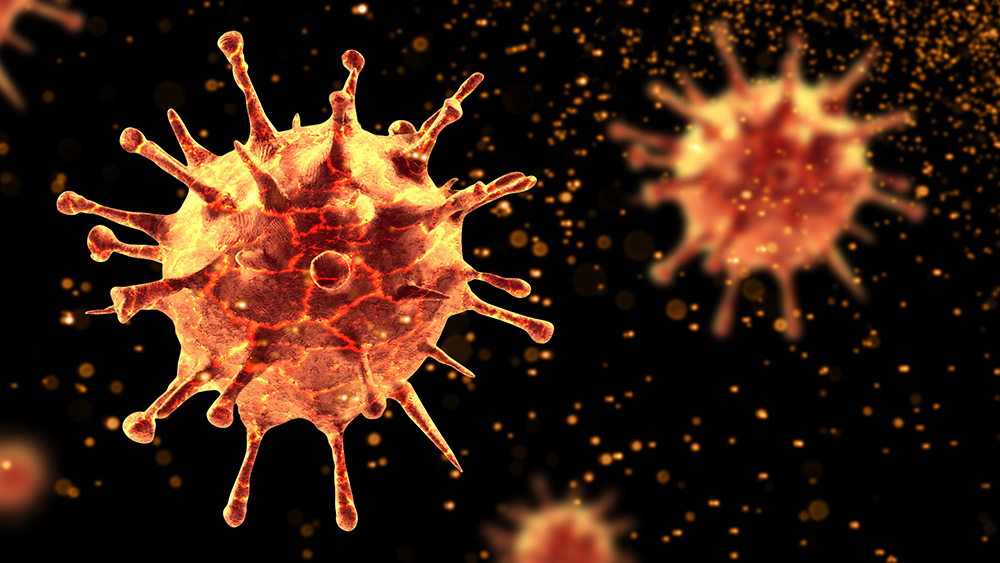
Advertisement
A new study shows that coronavirus (COVID-19) can impair the neurological functions of patients with the disease. Researchers from the Huanzhong University of Science and Technology in Wuhan, China looked at case records of COVID-19 patients and found symptoms of brain and nerve problems in over a third of COVID-19 patients and in nearly half of those with severe infections, which include headaches, stumbling, nerve pain, slurred speech and seizures. According to the team, the presence of these symptoms can indicate that a person is more likely to deteriorate from COVID-19 and even die sooner.
Coronavirus-related neurological ailments have been reported before
Around the world, neurologists had observed that some coronavirus patients were developing serious impairments of the brain. In early March, a 74-year-old man was brought into the emergency room in Boca Raton, Florida, twice after he had a fever and trouble breathing. During his second visit, the man had somehow lost the ability to speak and couldn’t tell doctors what was wrong with him or even just his name. Tests eventually showed that the man was infected with the coronavirus.
Meanwhile, a female airline pilot with coronavirus was confused and complained of a headache. She was only able to tell healthcare workers her name and little else. As she became less responsive over time, her brain scan revealed a case of acute necrotizing encephalopathy, a rare brain condition linked to influenza and other viral infections. Parts of her brain showed abnormal swelling and inflammation, with smaller areas where some cells had died.
Doctors in Italy have also made similar observations regarding neurological impairment in coronavirus patients. Dr. Alessandro Padovani from the University of Brescia noted that some patients became delirious even before developing respiratory ailments. The university’s hospital has since opened a separate NeuroCovid unit to care for patients with neurological symptoms.
Neurological ailments as an indicator of risk
To learn more about the link between coronavirus and neurological impairment, researchers analyzed 214 patients from Wuhan, China, who were treated in one of three special care centers in the university’s Union Hospital. Here, patients’ neurological symptoms were sorted into one of three categories. (Related: Some patients experiencing an unusual coronavirus symptom known as “fizzing.”)
The first of these categories was for central nervous system manifestations such as headaches, dizziness, impaired consciousness, acute cerebrovascular disease, ataxia and seizure. The other two were skeletal muscular injury manifestations and peripheral nervous system manifestations, including impairment of vision, smell and taste.
Of the 214 patients that the researchers observed, 78 patients — 36.4 percent — had neurologic manifestations. More importantly, these patients had shown fewer of the typical symptoms of coronavirus infection, despite being older and having more pre-existing health problems.
“Compared with patients with non-severe infection, patients with severe infection were older, had more underlying disorders, especially hypertension, and showed fewer typical symptoms of COVID-19, such as fever and cough,” stated the researchers.
Based on their findings, the researchers suggest that healthcare workers consider patients with neurological symptoms to be potentially infected with the coronavirus. According to the researchers, this would allow the coronavirus to be detected early and help prevent further transmission.
Establishing the link further
While scientists found the study noteworthy, they also stressed that respiratory symptoms should still be the main focus of the pathology of the coronavirus.
“The observations of neurological complications in a subset of COVID-19 positive patients [are] worthy of note but should not distract from a focus on the main pathology of respiratory distress,” said Ian Jones, a virologist at the University of Reading in England who was not involved in the study. “Almost half of the patients described here had underlying health issues and there is no direct data given on the presence of [the] virus at neurological sites.”
He also states that “at the moment,” the neurological complications might be a consequence of a severe coronavirus infection — instead of a new concern.
“Viraemia, the presence of virus in the bloodstream, from where it can access neuronal tissue, was described for SARS but not in all patients and then only transiently,” he explained. “It happens, but is generally not what coronaviruses do.”
Neurologists admit that there is still much to learn about how these neurological symptoms are related to the coronavirus, with other teams doing studies similar to that of the researchers from Huanzhong University. For instance, Dr. Sherry Chou, a neurologist at the University of Pittsburgh School of Medicine, is leading a team of investigators at the Neurological Care Society. Chou emphasized the importance of these neurological studies, as helping someone with these ailments isn’t as simple as addressing respiratory ones.
“We absolutely need to have an information finding mission, otherwise we’re flying blind,” said Chou. “There’s no ventilator for the brain. If the lungs are broken we can put the patient on a ventilator and hope for recovery.”
“We don’t have that luxury with the brain.”
Sources include:
Advertisement
Advertisements
















